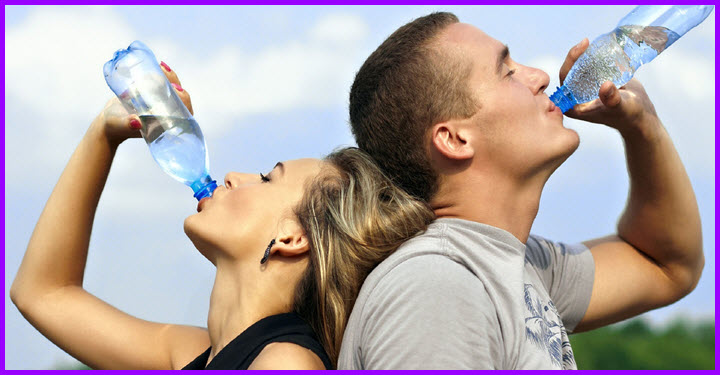Pretty Uncontroversial Advice Or Is It?

We hear that 8 glasses a day advice all the time along with it removes fat and toxins. But is it true and where did that amount come from?
“Adolph EF. The regulation of the water content of the human organism. J Physiol (London). 1921;55(1-2):114-32”
In short, the author measured his own urine and sweat output and determined he lost 3 percent of his body weight in water per day, which came out to be eight cups. Based on this, for a long time the water requirement guidelines were eight cups. However, this is not the case anymore except that most people still know the saying: eight glasses of water a day.
“Vivanti AP. Origins for the estimations of water requirements in adults. Eur J Clin Nutr. 2012;66(12):1282-9.”
http://en.wikipedia.org/wiki/Hyponatr…
http://en.wikipedia.org/wiki/Dehydration
http://en.wikipedia.org/wiki/Overhydr…
http://en.wikipedia.org/wiki/Water_cu…)
When you drink too much plain water, your electrolytes no longer can balance the exchange of fluid inside and outside the cell. This causes parts of your cells to swell and others to dehydrate (due to loss of salt).
Also, realize what you input doesn't equal what you output. If you drink a glass of water, you do not urinate a glass of water. You will urinate a glass full of urine, which is filled with electrolytes and other stuff. So urine is flushing out minerals.
Other questions answered in this video are:
- Is the body really 60% water?
- Does water flush out toxins?
- Does drinking water help to eliminate fat.
- Does the body know when it is thirsty?
- What could be wrong with drinking lots of water?
Discover what Dr. Berg has to say on the water topic.
.
So, don’t feel that you’re doing it wrong if you can’t count off sixty-four ounces per day.
You probably don’t need it, and all those supposed benefits are misleading at best and dangerous at worst.
Featured image is from pixabay.com
You can get more good information on this topic from this source article.
